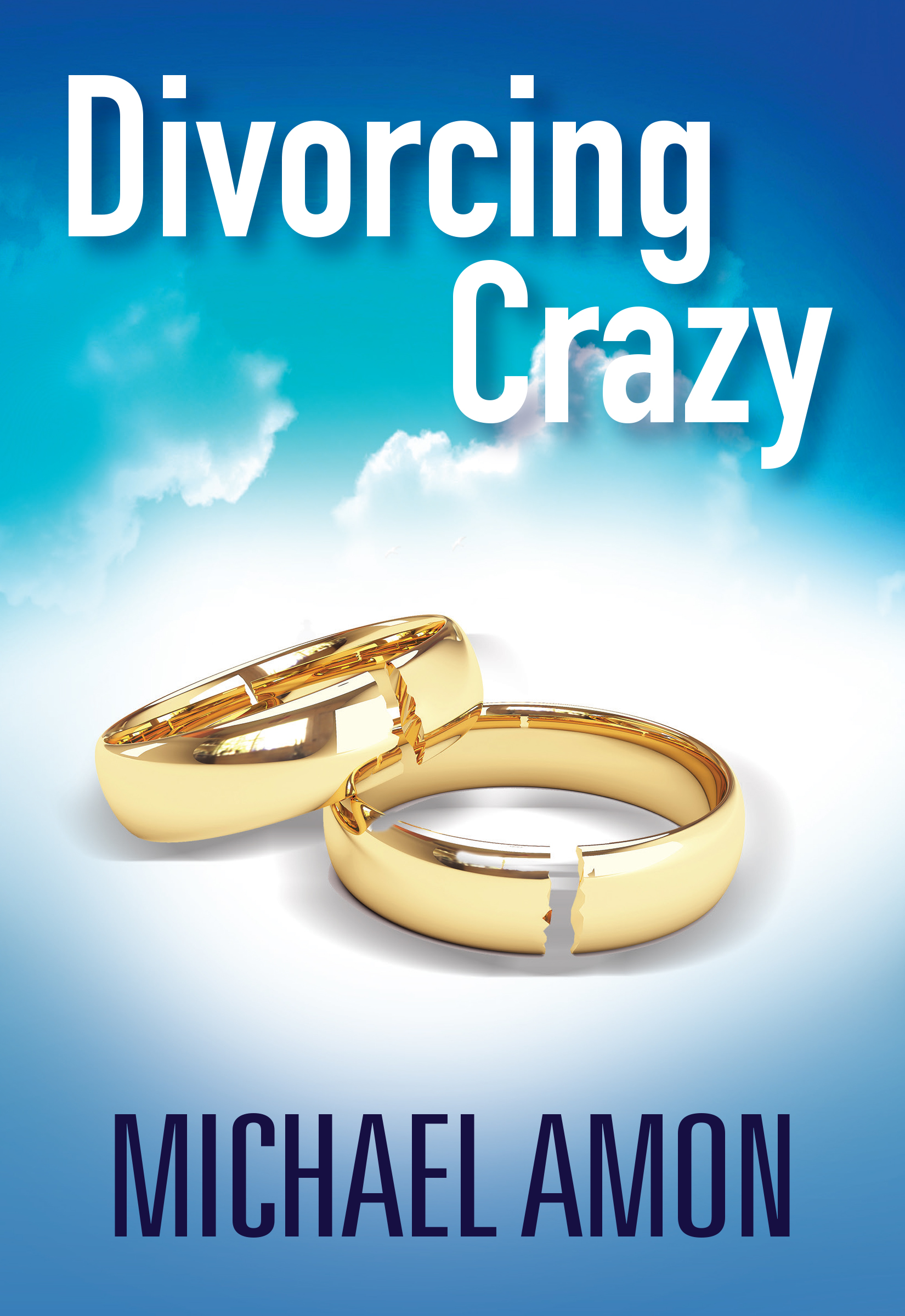
Publisher:
N/A
Publication Date:
N/A
Copyright Date:
N/A
ISBN:
N/A
Binding:
Paperback
U.S. SRP:
N/A
DIVORCING CRAZY
By Michael Amon


- Posted by David Herman
- |
As it happens, just before reading DIVORCING CRAZY, this reviewer came across an article in The Guardian by Sonia Sodha titled “The idea that family courts are biased against men is a dangerous fallacy” (March 5, 2020). Sodha argues that a disproportionately male judiciary is one reason why, in actuality, the bias in custody cases all too often runs in favor of men rather than women. Another reason is the rise of an unsubstantiated but influential theory of “parental alienation syndrome.” This theory was first put forward in the 1980s by Richard Gardner, a now-discredited psychologist who stigmatized mothers’ claims of domestic abuse as lies designed to alienate children from their fathers.
Read against this backdrop, Michael Amon’s novel raises important issues linked to (cultural understandings of) divorce. Although it might be assumed initially that DIVORCING CRAZY centers on a character who is crazy about getting divorced, i.e., a “divorcing-crazy” individual who divorces repeatedly, “Crazy” is in fact the nickname that the narrator-protagonist uses for his former spouse until just a few pages from the end of the book. Throughout the novel, the narrator’s ex-wife remains a vague, opaque character who only steps out of the shadows long enough to try to sabotage custody arrangements, or otherwise destroy the narrator’s life. She repeatedly files motions that seek to undo existing agreements pertaining to child custody and support, and to bankrupt the narrator with legal fees that eat into the very assets on, which she makes more and more imperious demands. She also makes false allegations about illicit drug use, alcohol abuse, and even the possession of child pornography on the part of the narrator.
Until very late in the novel, where the narrator acknowledges that his former wife (now granted the name of Sara) is likely afraid of the outcome of their custody dispute and “is just reacting and making stupid choices,” he attributes Sara’s over-the-top litigiousness and general aggressiveness to a kind of brute irrationality, an insanity summed up in his harsh sobriquet for her. In this way, while admitting that he himself was not a perfect spouse, the narrator aligns his circumstances with what Gardner described as “parental alienation syndrome”. Significantly, the narrator himself uses this phrase on the penultimate page of the novel.
Often stylishly written, particularly when the narrator is making disparaging comments about other attendees at his compulsory AA meetings, the novel’s dark humor begins to erode as he makes a sudden swerve toward forgiveness and acceptance—and also religious devotion—that raises more questions than it resolves. The narrator suggests that the meetings he has been attending cause the change, teaching him to let go of his hyper-controlling impulses and instead accept “the universe’s plan.” (In this respect, the Serenity Prayer that the narrator initially scorns—“God, grant me the serenity to accept the things I cannot change, courage to change the things I can, and wisdom to know the difference”—becomes increasingly relevant as the novel unfolds.) But apart from his brief acknowledgment that his ex-wife may be afraid about their children’s fate, the narrator offers a one-sided account that fails to engage non-reductively with Sara’s motives. Could it be that the joking dismissiveness that the narrator puts on as a kind of protective armor when stressed or challenged was the true cause of alienation in this case? As with other narrators who are unreliable, whether by authorial design or not, readers will have to frame their own answers to this and other questions about a teller who is also a character—a character who, in turn, reflects larger cultural attitudes toward gender roles, marriage, and family relationships.
Serio-comic in tone, Michael Amon’s DIVORCING CRAZY uses cleverly sardonic, off-color humor to recount the consequences of a man’s divorce, while tracing how the narrator eventually tries to let go of resentment and embrace whatever life has to offer.
~David Herman for IndieReader

Publisher:
N/A
Publication Date:
N/A
Copyright Date:
N/A
ISBN:
N/A
Binding:
Paperback
U.S. SRP:
N/A

- Posted by David Herman
- |
IR VERDICT:
DIVORCING CRAZY, by Michael Amon, takes an honest look at divorce, Family Court, fatherhood, AA meetings, and love, all with a sense of humor and a dash of sober realism. Custody issues are never easy, and Amon’s book initiates his readers into his world in a heartrending yet entertaining way.

DIVORCING CRAZY
Michael Amon
Rated 3.4 / 5 based on 1 review.